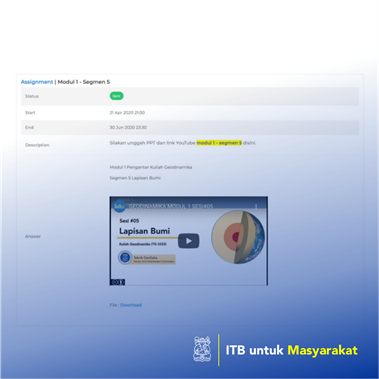

Zulfakriza
E-learning, also referred to as online learning or electronic learning, is the acquisition of knowledge which takes place through electronic technologies and media. In simple language, e-learning is defined as “learning that is enabled electronically”. Typically, e-learning is conducted on the Internet, where students can access their learning materials online at any place and time. E-Learning most often takes place in the form of online courses, online degrees, or online programs. There are as many definitions of e-learning as there are educational scientists in the world. In order to get a better overview of the various academic definitions of e-learning, let’s take a look at some examples from different academic institutions and educational researchers. Sarah Guri-Rosenbilt from the Open University of Israel explored the exact definition of e-learning in great detail in her 2005 research paper “’Distance Education’ and ‘E-Learning’: Not the Same Thing”. She defined e-learning as electronic media used for various learning purposes ranging from conventional classroom add-on functions to online substitution for face-to-face meetings with online encounters. Clark and Mayer defined E-learning as instructions delivered through digital devices with the intent of supporting learning in their 2016 research paper “E-learning and the science of instruction: Proven guidelines for consumers and designers of multimedia learning.” Arkorful and Abaidoo defined e-learning as using information and communication technologies to for enabling access to online teaching and learning resources in their 2015 research paper “The role of e-learning, advantages and disadvantages of its adoption in higher education.”
Penerapan Karya Tulis
A learning system based on formalised teaching but with the help of electronic resources is known as E-learning. While teaching can be based in or out of the classrooms, the use of computers and the Internet forms the major component of E-learning. E-learning can also be termed as a network enabled transfer of skills and knowledge, and the delivery of education is made to a large number of recipients at the same or different times. We are updating material of Geodynamic lecture to presenting in online course